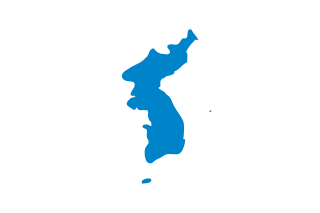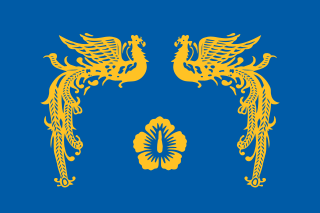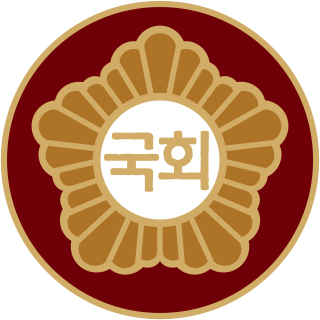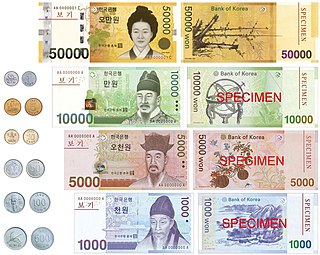 W
WThe Chief Justice of the Republic of Korea is the Chief Justice of the Supreme Court of Korea. The Chief Justice is considered the head of the judicial branch of the South Korean government.
 W
WThe Chief of Staff to the President, or Chief Presidential Secretary, is the highest-ranking employee of the Blue House and serves as chief of staff to the President of South Korea. The chief presidential secretary is traditionally one of the first officials appointed by an incoming president. Incumbent President Moon Jae-in was a former chief of staff.
 W
WThe Constitutional Court of Korea is an independent and specialised court in South Korea, whose primary role is the reviewing of constitutionality under the Constitution of the Republic of Korea. It also has administrative law functions such as ruling on competence disputes between governmental entities, giving final decisions on impeachments, and making judgments on the dissolution of political parties.
 W
WThe Deputy Prime Minister of South Korea is a senior member of the Cabinet of South Korea.
 W
WDongbaeg Medal, also written as Dongbaek Medal, is a civil award of the Republic of Korea. It is the third class of South Korea's Order of Civil Merit, which is the primary series of awards for Korean civilians. Recipients need not be South Korean civilians, however; the honour has been bestowed upon some foreigners.
 W
WG-PASS Companies refer to companies acknowledged of their technical skills and reliability by PPS KOREA through domestic government procurement, possessing potential for competitive export in foreign nations. They professionally manufacture products necessary in government procurements. As of 2016, there were 275 companies selected.
 W
WK-Startup Grand Challenge is a startup accelerator program supported by the Government of South Korea. The program was launched in 2016 by the National IT Industry Promotion Agency (NIPA) and funded by the Ministry of SMEs and Startups of South Korea. The program is based in the Pangyo Techno Valley, known as the Korean version of the Silicon Valley.
 W
WKorean reunification refers to the potential reunification of North Korea and South Korea into a single Korean sovereign state. The process towards reunification was started by the June 15th North–South Joint Declaration in June 2000, and was reaffirmed by the Panmunjom Declaration for Peace, Prosperity and Unification of the Korean Peninsula in April 2018, and the joint statement of the United States President Donald Trump and North Korean Supreme Leader Kim Jong-un at the Singapore Summit in June 2018. In the Panmunjom Declaration, the two countries agreed to work towards a peaceful reunification of Korea in the future.
 W
WSince the establishment of the Government of the Republic of Korea, commonly known as South Korea, in 1948, twelve people have served nineteen terms as president of South Korea. Under the Constitution of South Korea, the president is the country's head of state as well as its head of government. The president is also the commander-in-chief of the Armed Forces.
 W
WThe following is a list of the prime ministers of South Korea from the First Republic to the Sixth Republic. The first column consecutively numbers the individuals who have served as Prime Minister, while the second column consecutively numbers the Prime Ministerial terms or administrations.
 W
WThe National Assembly of the Republic of Korea, often shortened to the National Assembly in domestic English-language media, is the unicameral national legislature of South Korea. Elections to the National Assembly are held every four years. The latest legislative elections were held on 15 April 2020. The National Assembly has 300 seats, with 253 constituency seats and 47 proportional representation seats; 30 of the PR seats are assigned on additional member system, while 17 PR seats use the parallel voting method.
 W
WThe National Intelligence Service is the chief intelligence agency of South Korea. The agency was officially established in 1961 as the Korean Central Intelligence Agency, during the rule of President Park Chung-hee's military Supreme Council for National Reconstruction, which displaced the Second Republic of Korea. The original duties of the KCIA were to supervise and coordinate both international and domestic intelligence activities and criminal investigation by all government intelligence agencies, including that of the military. The agency's broad powers allowed it to actively intervene in politics. Despite being involved in many controversies, it is regarded as one of the most elite intelligence agencies in Asia. Agents undergo years of training and checks before they are officially inducted and receive their first assignments.
 W
WThe Order of Merit for National Foundation is one of South Korea's orders of merit. It is awarded by the President of South Korea for "outstanding meritorious services in the interest of founding or laying a foundation for the Republic of Korea." The Order was originally established under a slightly different name 건국공로훈장 (建國功勞勳章) by Presidential Decree #82, on Apr. 27, 1949, and is the oldest Order of the Republic of Korea. On Jan. 16, 1967, there were major changes made to the Order of National Foundation under Presidential Decree #2929. The name of the Order was shortened from 건국공로훈장 (建國功勞勳章) to 건국훈장 (建國勳章), and all three classes got new names and designs.
 W
WThe president of the Republic of Korea is the head of state and head of government of South Korea. The President is the head of the executive branch of the Government of South Korea as well as being the commander-in-chief of the Republic of Korea Armed Forces.
 W
WThe prime minister of the Republic of Korea is the deputy head of government and the second highest political office of South Korea who is appointed by the president of the Republic of Korea, with the National Assembly's approval. The prime minister may be a member of the National Assembly, but this is not required to hold the office.
 W
WSouth Korea has the raw materials and equipment to produce a nuclear weapon but has not opted to make one. In August 2004, South Korea revealed the extent of its highly secretive and sensitive nuclear research programs to the International Atomic Energy Agency (IAEA), including some experiments which were conducted without the obligatory reporting to the IAEA called for by South Korea's safeguards agreement. The failure to report was reported by the IAEA Secretariat to the IAEA Board of Governors; however, the IAEA Board of Governors decided to not make a formal finding of noncompliance. If the South created nuclear weapons it could change the balance of power on the Korean Peninsula. However, South Korea has continued on a stated policy of non-proliferation of nuclear weapons and has adopted a policy to maintain a nuclear-free Korean Peninsula.
 W
WThe South Korean won or Korean Republic won is the official currency of South Korea. A single won is divided into 100 jeon, the monetary subunit. The jeon is no longer used for everyday transactions, and it appears only in foreign exchange rates. The won is issued by the Bank of Korea, based in the capital city of Seoul.
 W
WThe transportation of the President of South Korea includes a variety of vehicles for the president maintained by the South Korean Government. Because of their role as Commander-in-Chief they exclusively use military transports for international travel. However, the civilian Presidential Security Service operates the President's motorcade.